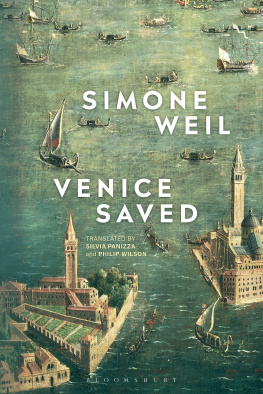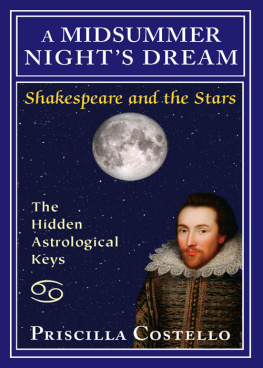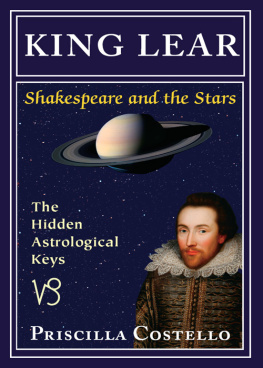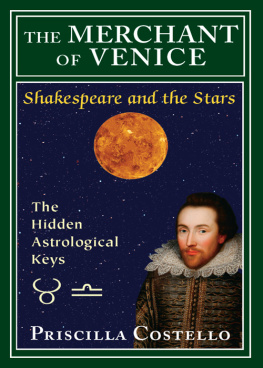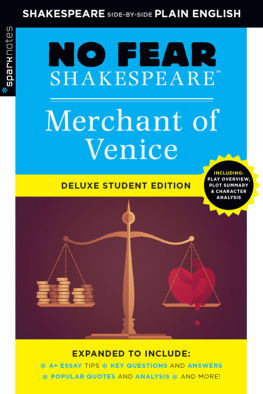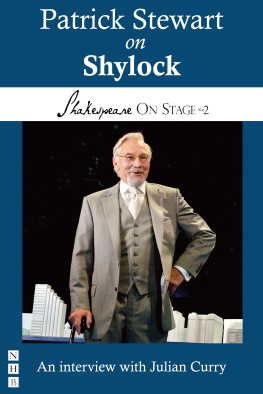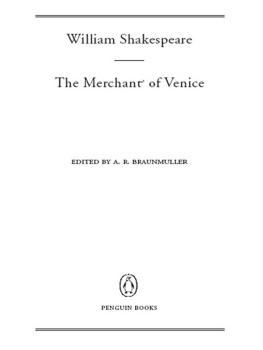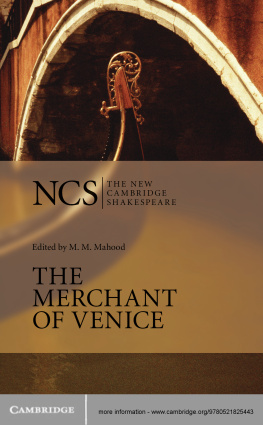Retrospect
I have been studying how I may compare is Shakespeares formula for a retrospect, and why not follow its direction when this reading of The Merchant of Venice must, quite literally, come to a conclusion. Among several texts suggesting themselves for a comparison Everyman is a likely choice. Shakespeare quotes from the play, and we often feel inclined to call both Antonio and Shylock by the name of Everyman. Perhaps the austere simplicity of the old morality play may support a rigorously simplifying retrospect upon such a world of words as The Merchant of Venice .
The Somonynge of Eueryman
In the old play Everyman is summoned by Death, that mighty messenger, to give account before the King of Heaven. Everyman is a rich man who offers Death a thousande pound for even a short delay. But golde, sylver, nor richesse do not help in his case. Everyman must go on his lonely journey at once. Fellowship, Kindred, Cousin, and Goods leave him alone, one after another, until he is ashamed of himself and hating himself for having asked them. Only his Good Deeds is left as a companion, but she is too weak to stand up and refers him to her sister, Knowledge. And from her Everyman, for the first time, hears the redeeming words Everyman I wyll go with thee and be thy guyde, / In thy most need to go by thy side. Knowledge leads him to Confession and to a severe course of penance. That makes Good Deeds regain her strength, and Knowledge assures Everyman that, having prayed to God and to the Virgin Mary, he will be freed from pain and granted forgiveness. No longer lonely but accompanied by Strength, Discretion, his Five Wits, and Beauty, he makes his testament, dividing his goods into two halves, leaving one half to charity and the other to its rightful owner, for of course, all he had was only lent to him. Then, offstage, he takes the last unction. When he reaches his grave, once more loneliness must prevail. Even Knowledge stays behind. Only Good Deeds descends with him into the grave, assuring him: Fere not; I wyll speke for the.
By fygure a morall Playe
The prologue to Everyman tells us that we are going to watch a play. Then we are shown by well-known, allegorically labeled figures what The story sayth. Therefore, Everyman is, above all, a player on the stage of life.
Antonio, Shakespeares merchant, is just that. Very early in the play he says: I hold the world but as the world I stage where every man must play a part, / And mine a sad one; and throughout the play, the audience is reminded of the metaphor of the stage. The associations roused by the old commonplace are, however, so far removed from Everyman that a comparison seems absurd. But Marlowe does not seem to have thought so, or he would not have referred so openly to the old play in Doctor Faustus .
In Everyman , all that happens on the stage of this world is, for all its vital importance, only ephemeral; the true reality is to come. In Shakespeares Venice this stagelike world is far from being void of a metaphysical complement, but the world-to-come has ceased to be thought of in terms of a heavenly kingdom existing outside time and space. Wherever he is, says Marlowes Mephostophilis, there is hell; it is within him, and in The Merchant of Venice the same holds good for heaven. We readily believe it. The psalmist already told us so, and so did the Stoics identifying reason with the will of God, and Plotinus in the Enneads , and St. Augustine in the Confessions , and Boethius in the Consolatio , and the Christian mystics by whom Luther was influenced, and, last but not least, the modern theists who had already begun to raise their voice in Shakespeares time.
In Everyman the great reckoning, the trial, is threatened but will be avoided by Everymans penance and confession, by the means of grace of the church, and by Good Deedss intercession. In The Merchant of Venice it is taking place here and now on the stage of life. In the old play the dramatis personae are identical with their names. In the new one they are actors who play a part assigned to them by the director or, speaking in metaphysical terms and using Plotinuss words, by the Intellectual Principle. Shakespeares tragicomedy is a spectacle of life that is as fictional as it is convincing for, to repeat once more Touchstones dictum (borrowed from Plutarch): the truest poetry is the most feigning. And both the feigning and the truth apply when, right within the spectacle of life in an already secularized world, the traditions of the old Church are reverently and gloriously displayed. There never was a finer Maria Advocata than the one in Shakespeares play.
God
In Everyman God (though, probably, unseen) is heard to pronounce his will. In his own name and in the name of his Son, he makes it known that his patience with ungrateful man is at an end. Mercy has failed and justice must prevail, and will do so immediately. We shall see, however, that Everyman, after having undergone punishment and death in this world, will attain heaven.
In The Merchant of Venice the name of God is used several times in the noncommittal, conversational, proverbial, and unconsciously blasphemous manner of modern usage, but there is an exception. When Portia pleads for an accusers mercy toward the accused, she pleads for God. Mercy, she says,
is an attribute to God himself;
And earthly power doth then show likest Gods
When mercy seasons justice.
Using the expression show likest Gods, Portia invites Shylock to remember that his Maker has called him by a name denoting mans likeness to God. Shylock is an anagram, a mirror-inverted version of show like and, therefore, a hallmark of humanity. Man, every man, is Gods image and called upon to show Gods will in the world. In The Merchant of Venice , God is not represented by a voice from above but by the players on the stage of life, Here on this lowly ground.
Death
For Everyman, Deaths summons is like the last trump. It makes him face the chasm between heaven and hell and makes him readily undergo every hardship that may prevent damnation.
In The Merchant of Venice the two men who are threatened by death, Antonio and Shylock, react quite differently. To Antonio death is welcome as a release from poverty and the decrepitude of age. All that matters for him is that his friend mourns for him and holds him in kindly remembrance. For Shylock the loss of his property is worse than death. The word sin, charged as it is with apocalyptic undertones, is used (with reference to themselves) only by the two young, brave, intelligent, and cheerful women, Portia and Jessica.
Historically, The Merchant of Venice is removed about a hundred years from Everyman and about four hundred years from our own age, but ideologically, it is, in many respects, nearer to us than to the old play
Fellowship
Like Everyman, Antonio is summoned to a trial that must lead to his death, and like Everyman he is sad and lonely He has no kindred or cousin , and all the good fellows to whom he has lent out money gratis are not at home when he comes to ask for a loan. But this social loneliness is far surpassed by a personal isolation when his friend, Bassanio, falls in love with a woman and marries her.
But, paradoxically enough, the lonely man is yoked together by a legal bond with an alter ego, a Jewish usurer who is also a kind of merchant, and who is also a pathetically lonely man. Both men are blind to the fact that they hold up the mirror of intellectual recognition to one another. This is made unmistakably clear when the trial begins and the lawyer asks, Which is the merchant here? and which the Jew? And there can be no doubt that both men represent Everyman when, at the end of the trial, Antonio draws up a contract resembling Everymans testament, and Shylock is told to ask the Dukes mercy in a phrase quoted from the old play.


